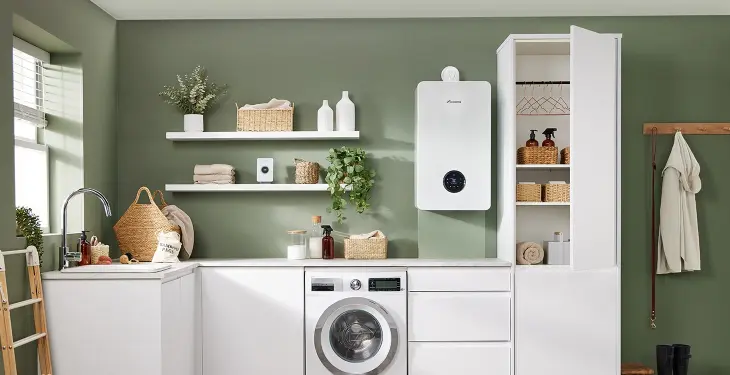

Written by Stephen Day
Gas Safe Engineer
Updated: 12th December, 2025
A combi boiler should be around 1.0 to 1.5 bar when cold and up to about 2.0 bar when hot.
Get a new boiler quote, save up to £550 per year (0% APR available).
Combi boiler pressure affects how well your heating and hot water system works.
If the pressure is too low, your radiators may not heat properly.
If the pressure is too high, the boiler may lock out for safety.
Understanding what the pressure should be, why it changes and when you need a Gas Safe engineer helps keep your home warm and your boiler running safely.
Most modern UK combi boilers work best at a cold pressure of around 1.0 to 1.5 bar.
When the heating switches on and the water inside expands, the pressure usually rises slightly to somewhere between 1.5 and 2.0 bar. This small increase is normal.
Manufacturers such as Worcester Bosch, Vaillant and Ideal give similar recommended pressure ranges in their user manuals.
Many boilers also have built-in safety cut offs that activate around 3 bar to protect the system.
Exact readings vary between models, so your boiler’s handbook is always the best reference, but the ranges above reflect what engineers see across most UK homes.
A quick way to check if your pressure is normal is to look at the gauge on the front of the boiler.
A stable reading within the ranges above usually means the system is working as it should.
Boiler pressure changes for several reasons.
Some shifts are normal, while others point to a developing fault that needs attention. Below are the most common causes.
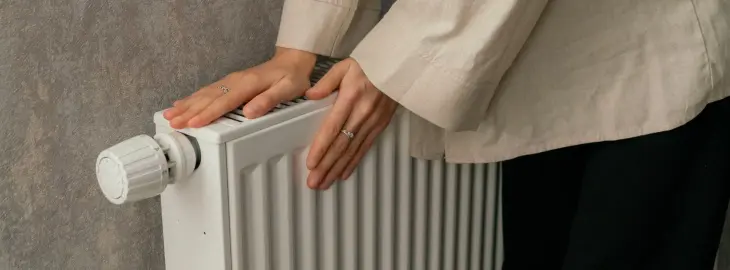
When the boiler fires up, water in the system expands and raises the pressure slightly.
Once the heating turns off and the water cools, the pressure drops again. This pattern is expected.
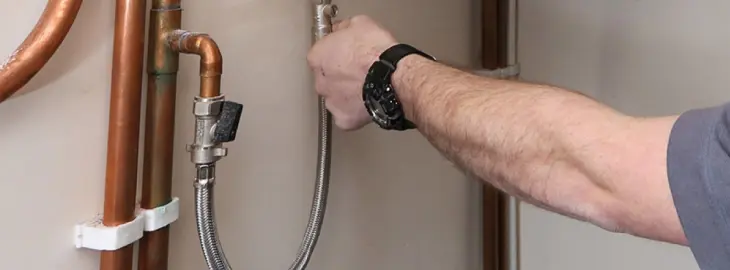
The filling loop is the small flexible pipe beneath your boiler that tops up system water.
If the valves are left slightly open, even by mistake, it can cause the pressure to rise slowly over time.

The expansion vessel absorbs pressure changes when the water heats and cools.
If the internal air charge drops or the membrane fails, the pressure can rise too quickly or fluctuate through the day.

The pressure relief valve (PRV) is a safety device that releases water if pressure gets too high.
If the valve becomes worn or debris stops it from closing properly, it may leak and cause a gradual loss of pressure.
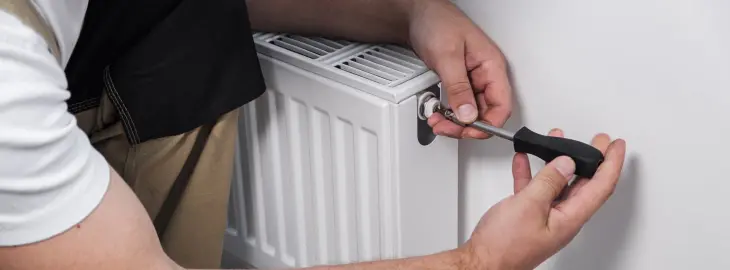
Blocked pipework or trapped air pockets can affect water flow, which may cause sudden pressure drops when the boiler tries to circulate water.
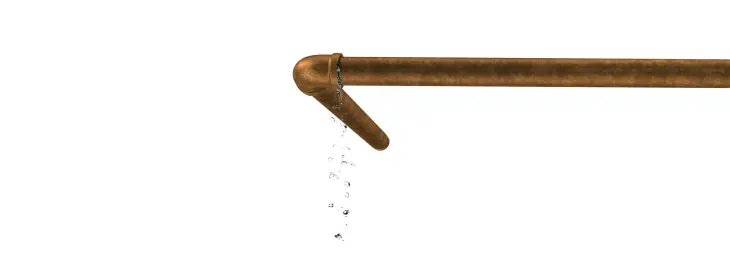
Even tiny leaks in pipes, joints or radiators can reduce pressure.
These may not be visible at first, especially if the leak is slow.
Gas Safe engineers usually diagnose pressure issues by watching how the pressure gauge behaves over time, checking the expansion vessel charge, testing the PRV and confirming the filling loop is fully closed.
Pressure faults do not remain stable. As seals age or internal components wear, a minor pressure fluctuation can turn into a more serious problem.
Early diagnosis prevents unnecessary strain on the boiler and reduces the risk of a breakdown.
A quick look at your gauge can tell you a lot about what is happening. Here is a simple guide.
Pressure Reading | Meaning | Likely Outcome |
|---|---|---|
Below 1.0 bar | Pressure too low | Poor heating, boiler may stop running |
1.0 to 1.5 bar (cold) | Normal operating pressure | System should run correctly |
1.5 to 2.0 bar (hot) | Normal expansion | Safe, expected behaviour |
Above 2.5 bar | Too high | Boiler may shut down for safety |
Around 3.0 bar | PRV may activate | System will dump water to relieve pressure |
If your pressure is outside the normal range, the boiler may show an error code or switch itself off to protect the system.
If the pressure is too low, you can usually raise it by topping up the system.
Most homeowners can do this safely by following the instructions in the user manual.
Turn the boiler off and let it cool.
Locate the filling loop beneath the boiler.
Open the valves slowly until the gauge reaches around 1.2 to 1.3 bar.
Close both valves fully.
Turn the boiler back on and check that the pressure remains stable.
If the pressure drops again within hours or days, there is likely a fault.
You should not repeatedly top up the system, as this can cause internal corrosion.
High pressure often means water has been added accidentally or a component is not working as it should.
You may be able to reduce pressure by bleeding a radiator.
This releases a small amount of water and lowers the system pressure.
Turn the heating off.
Use a radiator key to loosen the bleed valve at the top of a radiator.
Allow a small amount of water to escape.
Close the valve and check the pressure gauge.
Repeat very gently if needed.
If pressure rises again soon afterwards, do not continue bleeding radiators.
The cause may be a stuck filling loop, a faulty expansion vessel or a PRV that is failing to close.
Only a Gas Safe registered engineer is allowed to open the boiler casing or work on internal components.
If your pressure problem involves anything beyond simple top ups or radiator bleeding, the boiler should not be opened by anyone else.
Contact an engineer if:
The pressure rises as soon as the boiler switches on
The pressure drops every day and needs topping up often
Water is leaking from the outside pipe (the PRV outlet)
The boiler keeps locking out due to pressure fluctuations
You hear gurgling, kettling or whistling inside the boiler
Radiators take longer to heat or have cold patches
The filling loop appears damaged or stuck open
A simple rule engineers use is this:
If you need to top up the pressure more than once a month, the system should be checked for a fault.
Engineers can test the expansion vessel, inspect the PRV, confirm the filling loop is correctly closed, check for internal leaks and ensure the boiler is safe to operate.
Keeping your boiler and heating system in good condition helps maintain stable pressure and reduces the chance of faults.
Helpful steps include:
Bleeding radiators when needed to remove air
Ensuring the filling loop valves are always closed
Checking the pressure gauge regularly
Booking an annual boiler service
Fixing small leaks as soon as they appear
Annual servicing is especially important because engineers test safety devices, clean internal components and check the expansion vessel charge.
These steps help prevent pressure issues before they develop.
If you are unsure why your pressure keeps changing or your boiler will not hold a steady reading, an engineer can diagnose the cause and ensure the system is safe.
iHeat works with Gas Safe registered engineers across the UK to provide clear advice, safe repairs and full boiler replacements when needed.
If your boiler pressure problem indicates a failing part or an ageing boiler, you can get a free fixed price quote online with no home visit required.
iHeat installs leading brands including Worcester Bosch, Vaillant and Alpha, with finance options and long warranties available.
Last updated: 12th December, 2025

Written by Stephen Day
Gas Safe Engineer at iHeat
Stephen Day is a Gas Safe registered and FGAS certified engineer with over 20 years of hands-on experience in the heating, cooling, and renewable energy industry, specialising in boiler installations, air conditioning, and heat pump systems.
LinkedInArticles by Stephen Day are reviewed by iHeat’s technical team to ensure accuracy and reliability.

19th February, 2026
Selecting the appropriate boiler for your London home involves understanding the different...
 Read Article
Read Article

19th February, 2026
A typical Annual Boiler Service includes a visual inspection to identify any obvious fault...
 Read Article
Read Article

19th February, 2026
Boiler servicing comprises a set of inspections and tests conducted by a qualified enginee...
 Read Article
Read Article
No obligation. Takes less than 60 seconds.